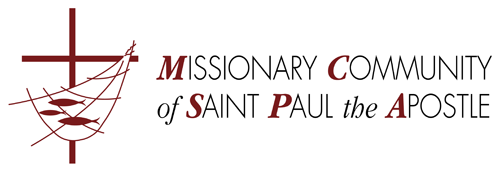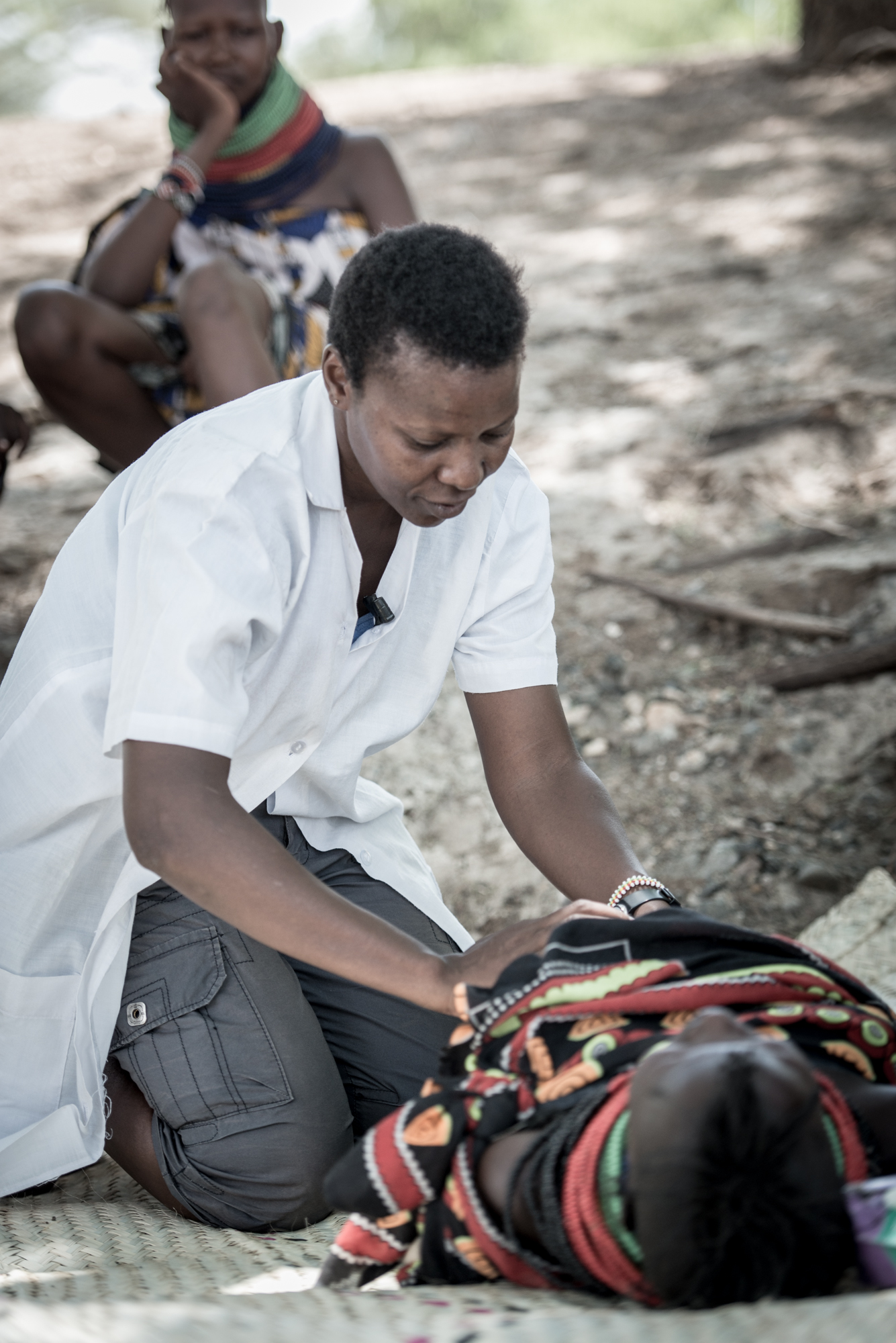Introduction
Turkana County with a total extension of 77.000 Km2 is one of the biggest counties in Kenya, it is a semi-arid land situated in the north-western part of Kenya bordering Uganda, Sudan and Ethiopia; it’s mostly populated by nomadic and semi-nomadic pastoralists. The county is completely isolated from the rest of the country by mountain ranges and the Lake Turkana whose waters are alkaline. Turkana is, in general terms, an area of extreme poverty, where its population of about 1.000.000 people largely depends on their animals; donkey’s goat’s sheep and camel (milk and blood) for their survival. Infrastructures and services of any kind; water, roads, communications, education, health etc. are either missing completely or in very poor shape. The lack of sufficient rainfall in the region leads to hunger, which is a continuous, and a constant threat to the local community.
Background
Since 1987, the Missionary Community of St. Paul the Apostle has been carrying out various developmental projects in the line of provision and securing the basic needs to the community in northern Turkana. The first one was the running of Lowarengak Dispensary, located near lake Turkana and around 50 Km south of the Kenya-Ethiopia border. This project has been active up to the present day and it has become an integrated health program, which includes 4 permanent dispensaries, and a mobile clinic unit to see to the health needs of the nomadic population at 24 outreach stations.
Present Undertakings
Under the umbrella of Nariokotome PHC (Primary Health Care) there are at present four operating satellite dispensaries, namely: Nariokotome, Nachukui, ‘Kokuselei and Todonyang. Also included under the unit is the Mobile Clinic operating from Nariokotome Dispensary covering 24 nomadic communities and providing medical checkup and attention to 3.000 children in the nutrition units and the primary schools within the catchment area. In an extensive area of 11.000 Km2, the program reaches out to an approximated population of 45.000 people directly benefiting 26.000 people a year.
Project Description
The lack of proper health facilities and the inability of the people to access to the nearest health facility is one of the biggest problems in Turkana. In the entire county, the health facility infrastructures are minimal; the proportional ratio of doctors to patients is of 1 to 50.000 people. The life expectancy is 47 years and the infant mortality rate is very high.
There exist only three referral hospitals in the whole district Kakuma mission hospital at a distance of 300 km from Nariokotome, Lokitaung sub county hospital at 55 km and Lodwar district hospital at 160 km, this last two with a lot of deficiencies, in poor conditions, lack of facilities and even staffs. The dry and hostile environmental conditions, lack of water and sufficient food are the main problem in Turkana; hunger continues to be a constant threat to the community. Turkana being an arid and semi-arid land with very low rainfall suffers constant drought, food production is not yet practiced due to the lack of sufficient water for cultivation and even for human consumption. Majority of people do not even manage to have one meal in a day. The poor living conditions in Turkana therefore presents a population where people do not even have their basic human needs fulfilled, are not well fed, weak with low immune system and thus prone to disease, illnesses and under nutrition.
Action Plan
This project aims at improving the general health conditions and living standards of the entire community in the area of influence of the project carried out from the central dispensary at Nariokotome. Through provision of permanent medical services at all the satellite dispensaries and a mobile clinic to the 24 nomadic outreaches in order to bring the health services closer to the people in both curative and preventive measures. The unit offers the following services; care and treatment of the sick, attendance and referral of medical emergencies, Immunization of the under-five, antenatal and postnatal care, health education ,Home visits, follow-up of chronic patients, treatment and home based care for HIV/AIDS patients, training and refresher courses for traditional birth attendants (TBAs) and community health workers (CHWs), seminars for staff and workshops, community health based programs, nutritional care, school health, laboratory diagnostic services and coordination of yearly free Eye and Surgical Camps carried out by visiting Spanish doctors.
Curative services (Treatment)
The sick are seen daily in all our dispensary units including the mobile clinic by the staff concerned. Relevant treatment is given and if need be referrals are made either to Lodwar District Hospital (165 Km), Kakuma Mission Hospital (280 Km) or in some specific cases to Nairobi (1000 km). Patients with chronic ailments are followed up to full recovery. Drugs compliance is emphasized. In a month a total of 400 patients are seen in our units as first attendances and approximately 700 re-attendances. With the availability of laboratory services at the central dispensary in Nariokotome, proper diagnosis and treatment of the sick is done. The top ten diseases commonly treated at the dispensaries and during the mobile clinics include: Malaria, Respiratory Tract Infections, Pneumonia, Diarrhea and Intestinal Infections, Skin, Eyes and Ear infections, Snake, Scorpion and Spider bites, Urinary Tract Infections, Accidents Fractures, Tuberculosis and HIV/AIDS clients who receive medication and food supplements on monthly basis under a special program.
Preventive services
In the line of prevention the program aims at giving proper health formation to the community at large in issues regarding preventive health and hygiene, creating awareness of the dangers of certain health conditions like HIV/AIDS to the community through health education at both dispensary and mobile clinics outreach levels. To the schools within our catchment area and reaching out to the nomadic communities through formation of community health workers and traditional birth attendants working hand in hand with them. Proper care and follow up of pregnant mothers during clinics and infants to detect underweight and undernourished children who are then followed up at the dispensaries and in the nutrition units. The administration of multivitamins, Vitamin A to all infants and school going children in order to improve on their eyesight is done at all levels. Great emphasis and importance is given to the Maternal Child Heath (MCH) program whereby immunization of the under-fives is greatly emphasized being the key point in the growth of the children. Holistic care and follow up of pregnant mothers is done during the clinics whereby they are also immunized against tetanus and given iron and food supplements. During school health programs health education and medical check-ups are done, sick cases detected are referred to our nearest dispensary for management and follow-up. Vitamin A administration and De-worming is also done routinely during our school health services.
Means available
In order for the above activities to be fulfilled we have qualified and experienced staffs (three staff nurses, ten patient attendants, one accountant and two drivers) that are very motivated and committed in their duties. We also have permanent structures where health services are provided at Nariokotome, Nachukui, Kokuselei and Todonyang that are fully furnished and equipped, though there is need for renovation and expansion in future. With the availability of the car, the mobile clinic has been successful throughout although we face a few problems with the car breakdown due to the rough roads in the catchment area. In times of emergencies, though the hospitals are far, the vehicle has proved to be of much importance. On average we are covering 3.500 kilometers per month during the mobile clinics and referrals of medical emergencies.
This project aims at securing the necessary funds for the smooth running of the above mentioned Primary Health Program and Mobile Clinic at Nariokotome. Few other health providers are active in the whole of North Turkana, which makes our program the only chance for access to health for an important part of the population of North Turkana besides our catchment population of 45.000 people. There’s still need of expansion as we continue receiving petitions from communities that are still far from facilities.



